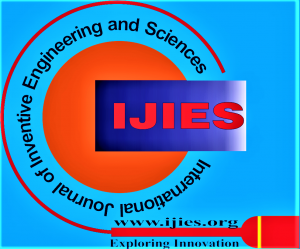Misconduct/ Plagiarism:
Employing ideas, methods, approaches, techniques or specific procedures obtained through confidential communications, such as research grants or reviews, without appropriate permission violates intellectual property rights, known as misappropriation or misconduct [1]. It is significant to respect such privileges and abide by ethical practices to maintain the integrity of the research community and protect intellectual property.
Misappropriation or misconduct of the research can take various forms, including but not limited to redundant publication, fabrication, falsification, and plagiarism [2]. It is essential to uphold research integrity and ethical standards to avoid misappropriation [3]. Authors must maintain high integrity and honesty, ensuring to adhere to research conduct guidelines and regulations. Any form of research misconduct undermines the credibility of research findings and may result in severe outcomes such as deprecation, funding failure, and litigation [4]. The Authors must recognise misconduct, avoid practices that may lead to misappropriation, and promote ethical research practices [5] [6].
The submitted article contents must be original. The International Journal of Inventive Engineering and Sciences (IJIES) employs similarity detection software such as Turnitin to verify the quality of the contents used in the article. The editor will promptly reject the article during the initial peer-review process if the article contains plagiarised content. It ensures that the journal will not compromise the quality of the published article in any way.
The International Journal of Inventive Engineering and Sciences (IJIES) upholds ethical misconduct standards and strictly opposes any misconduct, such as redundant publication, fabrication, falsification, and plagiarism. Authors must ensure that submitting articles to the journal must be original and have not been published anywhere.
The editor will ask for clarification from the author (s) within 2-3 weeks if a published article is suspected of plagiarism. The clarification will be referred to the relevant committee if the author (s) does not reply within the nominated time frame. The International Journal of Inventive Engineering and Sciences (IJIES) will support only the original author.
Furthermore, the editorial board will relay information to the appropriate chair, such as the dean or director of the funding organisation affiliated with the author, to initiate strict measures against them. The International Journal of Inventive Engineering and Sciences (IJIES) will take decisive action immediately or by implementing the Committee’s recommended measures:
- The journal will retract the PDF of the article from the website, turn off all hyperlinks to it, and append the term “plagiarised” to the article’s title.
- Moreover, the authors will be embargoed from the journal for 3, 5, or 10 years, so the author cannot submit any articles to the journal due to the embargo period.
- The journal will request the editors avoid authors classified in the embargo list.
References:
- María Francisca Abad-García, Plagiarism and predatory journals: A threat to scientific integrity, Anales de Pediatría (English Edition), Volume 90, Issue 1, 2019, Pages 57, e1-57.e8, ISSN 2341-2879, DOI: https://doi.org/10.1016/j.anpede.2018.11.006
- WAME – Plagiarism Policy
- COPE- Publication ethics and Misconduct
- ORI Policy on Plagiarism
- Definition of Research Misconduct | ORI – The Office of Research Integrity
- International Committee of Medical Journal Editors (ICMJE) – Scientific Misconduct, Expressions of Concern, and Retraction
- Strictly inherited to the Editorial and Publishing Policies of Blue Eyes Intelligence Engineering and Sciences Publication (BEIESP)
